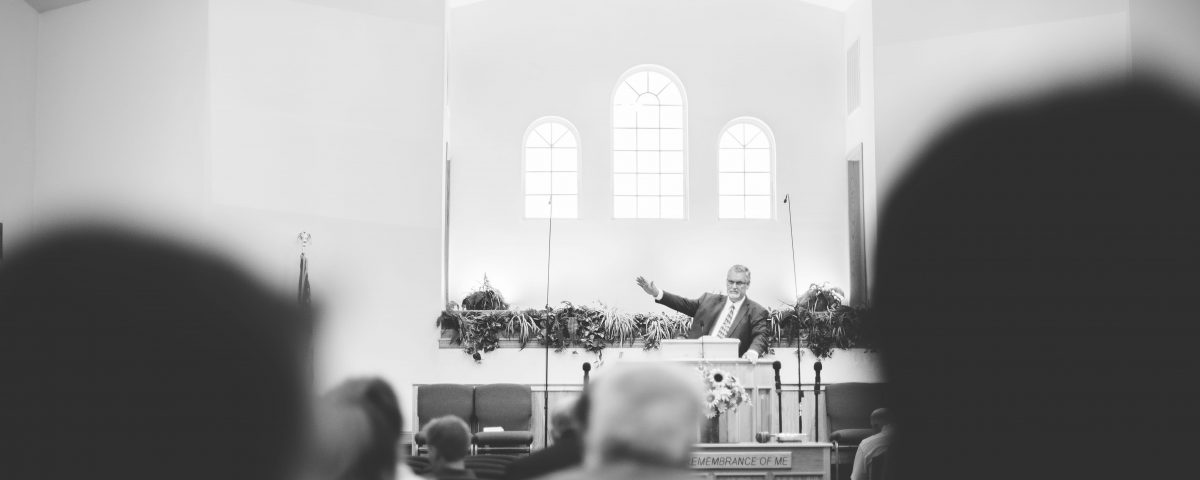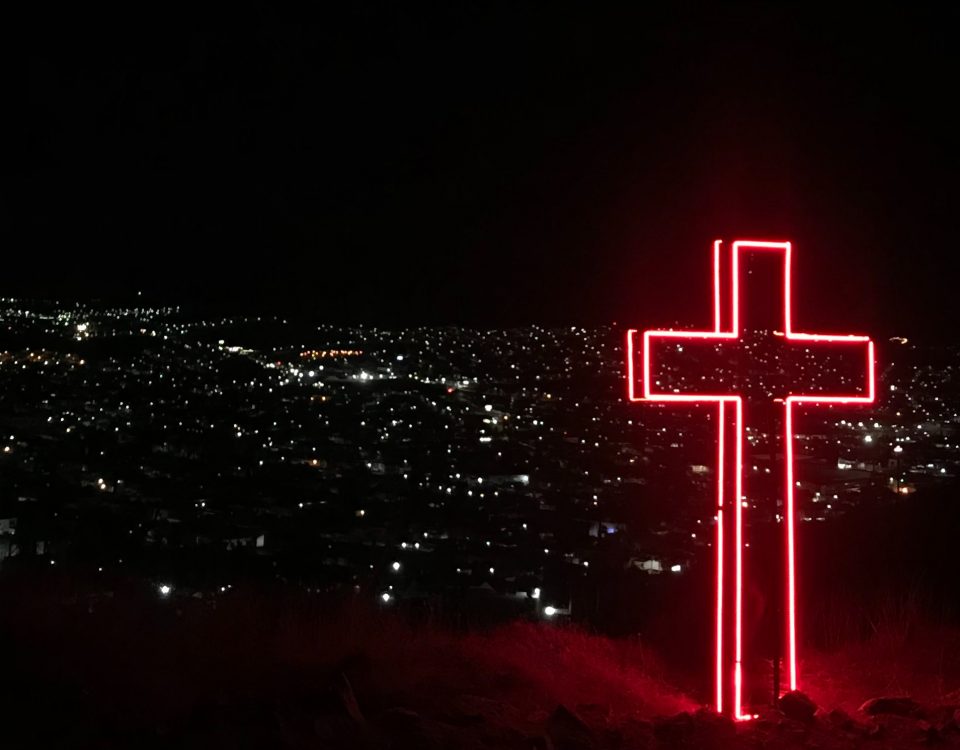
Scott Sauls On Unhealthy Ambition, Envy And Isolation In Leadership
March 17, 2018
5 Simple Questions Great Leaders Ask
March 22, 2018Is Church More than a Sermon?

In this podcast “Church: More than a sermon,” Drs. Darrell L. Bock, Michael Svigel, and Barry Jones discuss the question, “Why does church attendance matter if we have worship music, sermons online, and fellowship with other believers everyday?” and related inquiries from participants.
Timecode:
01:39 Why should we go to church?
07:20 Why can’t seminary substitute for the local church?
11:25 The culture of the consumerism and the church.
16:20 Women and the church
19:55 Communicating the importance of church as a minister
23:15 What if the church is not spiritually forming?
25:20 How do we stress the importance and expectations of community?
32:45 Is it a right motive to go to church to be both built up and build up?
37:00 How do you define a church?
37:55 Is it all right to leave a church where you get nothing out of?
42:20 What is the relationship between church and parachurch?
45:10 How does a minister balance time between sermon prep and pastoring?
47:20 How does one communicate online does not replace in person?
51:30 Should a person church shop?
53:30 As a seminary student, should church participation take precedent?
55:25 Why does DTS not include free food in class?
Transcript:
Darrell L. Bock: I want to frame this discussion by alluding to actually what caused us to have this topic, which you called, “The Church: More Than a Sermon.” After tonight, I want to add: “More Than a Sermon and Potluck.”
But anyway, we were talking to a group of Millennials at the turn of the year, Millennial women, who were interacting with us about their experience in the local church and talking about all the other places they get input. When we were all done – we had met with them for two hours – and when we were all done, we asked them, “What two podcasts would you like for us to do that would be of interest to your demographic?” The first one was a podcast on infertility, which I told them immediately was a topic I would have never thought to do a podcast on. So, I thank them for that.
Then the second one was, “Why should we go to church?” which produced its own kind of post facto conversation after they raised it. So, we thought, “That’s actually a good question.” I think that with the way in which institutions in general are viewed, and the way in which the church sometimes is viewed with suspicion in our larger culture, that’s a very fair question to ask. So, my opening question to you gentlemen is, besides the fact that Jesus did talk about church – which is a minor detail, okay?
All right.
Barry Jones: So, we can’t just say “Jesus”?
Darrell L. Bock: No, you just can’t just say “Jesus.”
Barry Jones: Okay, okay.
Darrell L. Bock: Okay? Because I’m the Jesus guy.
Barry Jones: Okay.
Darrell L. Bock: Okay? All right, but why should we go to church, in general, and in particularly, the value of the local church? How should we see the value of the local church? I’ll let you choose between the two of you.
Michael Svigel: Well, he’s closer.
Darrell L. Bock: He’s closer?
Barry Jones: Oh boy.
Darrell L. Bock: Okay.
Barry Jones: All right. Why go to church?
Michael Svigel: Why go to church?
Barry Jones: Why go to church? Jesus is not the sufficient answer.
Darrell L. Bock: Correct.
Barry Jones: So, I’ll give a little bit. It strikes me that one of the sort of succinct ways to capture what the church is about is the church is a liturgical community of disciples on mission; that the church is a liturgical community, so we gather for worship. The word “liturgy” sometimes freaks people out.
Darrell L. Bock: Yeah, I was freaked out just sitting here.
Barry Jones: It just means the work of the people. It’s what the people do when they gather for worship, and so there is a sort of traditional form and order to that. But even if your church doesn’t follow that traditional form and order, there is work that is done. Here is some kind of form and order that is there. So, every church, in a sense, has a liturgy, and at the heart of that is, at least, I think supposed to be, our participation in the ordinances or the sacraments of the church.
My position on that is that these are actually means by which God nurtures and sustains us in grace as we participate in those, and therefore, ought to be things that we look to, that we go to, that we participate in for our own spiritual nurture and growth.
A liturgical community, that we are people who are to live together, not just gathering for a worship gathering, but actually really do that much-abused phrase “life together.” Life on life. But that liturgical community of disciples that continue to grow in becoming more like Jesus and then joining Jesus in his mission in the world. A liturgical community of disciples on mission that – I think it was Alan Hirsch that I first heard say the idea, “It’s not so much that the church has a mission; it’s that the mission has a church,” that God has a mission in the world.
He has called us, as his people, he has swept us up into this grand mission that the church comes out of this way in which God is purposefully engaged in accomplishing his mission in the world. Then he invites us into participation in that mission. So that’s what it means to be a Christian, it seems to me, is that we would be people who identify with Christ and his body and participate in this liturgical community of disciples on mission.
Darrell L. Bock: So, you’re the liturgical guy?
Barry Jones: Well, we can talk about what I think that means. I mean, in addition to my role in seminary, you know I’m the teaching pastor at Irving Bible Church. So, our liturgy is very contemporary. I mean, we sing mostly all very contemporary songs with the band and all of that. So, what liturgy looks like may not look exactly the way what that word sort of conjures to mind. Yet, it’s the recognition that it’s what we do when we gather together that has some kind of form, and that that form is for the purpose of forming us as disciples to live on mission in the world.
Darrell L. Bock: Michael?
Michael Svigel: Yeah, I would say that the purpose of the church, and church means – the ekklesia means an assembly, a gathering. We come together as the church for particular activities in this liturgical gathering. I would also reemphasize what he mentioned, the sacraments: baptism, of course, the initiation into the church, but this ongoing observance of eucharistia, this giving of thanks. Yes, the bread and the wine or grape juice, whatever the case may be, as the center, the thing around which our proclamation and our prayers centers, it’s an embodied, corporate experience.
The other thing I would say that’s very important is I absolutely do not believe you can grow spiritually in any meaningful balanced way apart from the means God has given for spiritual growth, which is the community. The New Testament uses – Paul uses the image of growth – this is an agricultural term for growing spiritually – several places, about nine times. Every single one of them is in the context of the corporate community. It’s not – sorry, it’s not, “Read your Bible, pray every day, and you’ll grow, grow, grow,” as the AWANA song goes.
It’s gather together, pray for one another, exhort, encourage one another, exercise your gifts for the benefit of one another, and that is if there’s a key to spiritual growth, it is in the gathered community. Yes, with all of the aches and the pains and the hardships and the frustrations, but also all of the joys and the celebrations and the encouragement and the uplifting experiences that we have. It’s both of those things, and it always has been.



